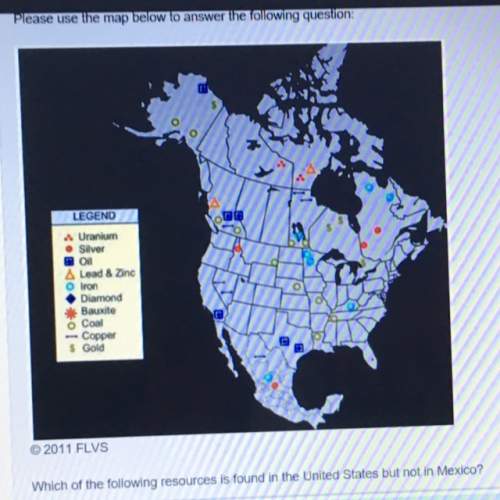Ineed , i dont understand this
is the "just peace" or the "peace of vengeance" a better...

History, 13.01.2020 11:31 slawson4328
Ineed , i dont understand this
is the "just peace" or the "peace of vengeance" a better policy? why?
wilson's proposals were largely ignored at the paris meetings. his hopes for a "just peace" with fair treatment of all nations met unexpected opposition from other allied leaders. they thought the central powers should be punished; and they wanted to divide, separate, and disarm the defeated powers. wilson believed that a just peace would prevent new hostilities, but his opponents believed only severe actions would prevent future german aggression.
the longer the meeting lasted, the more determined the supporters of a harsh peace became. although over thirty allied countries were represented, it was the four great powers--england, france, italy, and the united states--who made the major decisions. france, italy, and england all supported the "peace of vengeance" by demanding conquered territories and colonies from the central powers.
wilson realized his proposals would meet defeat. however, believing that his concept of a league of nations was vital to a lasting peace, he spent much time working on incorporating such a world organization into the peace treaty. the allied representatives unanimously accepted his efforts. the league of nations was established to manage international relations, to limit weapons build-up, and to settle disagreements between nations in a peaceful way.
thus, when the peace treaty was finalized, wilson signed it, hoping that the league of nations could resolve the difficulties of the treaty. in may 1919, representatives of the german government met to approve the treaty. the germans were bitterly disappointed because wilson's fourteen points had not been followed. with no alternative, the german representatives signed the treaty at the palace of versailles just outside paris, france, on june 18, 1919. the treaty became known as the treaty of versailles.
the germans were stunned by the terms of the treaty. alsace-lorraine was given to france, and other german colonies were divided among the victorious allies. germany itself was occupied by foreign troops. both the german army and navy were drastically reduced, leaving the country relatively defenseless. the lands of the other central powers--austria, hungary, bulgaria, and turkey--were also divided by the terms of the treaty.
consequently, the end of world war i resulted in the reshaping of the entire european continent. the harsh terms created bitter feelings among the defeated nations, feelings that would only resurface in the future.

Answers: 3
Another question on History


History, 21.06.2019 17:30
Concord tv: did the media show any bias while covering the concord city election? explain your response. your response
Answers: 2

History, 22.06.2019 01:00
In what way did expansion and global trade during the 15th to 18th centuries affect the economies of european countries?
Answers: 2

History, 22.06.2019 07:00
Excerpt from momotaro, or "little peachling" japanese folktale momotaro finding that he excelled every body in strength determined to cross over to the island of the devils, take their riches, and come back. he at once consulted with the old man and the old woman about the matter, and got them to make him some dumplings. these he put in his pouch. besides this he made every kind of preparation for his journey to the island of the devils and set out. then first a dog came to the side of the way and said; "momotaro! what have you there hanging at your belt? " he replied: "i have some of the very best japanese millet dumplings." "give me one and i will go with you," said the dog. so momotaro took a dumpling out of his pouch and gave it to the dog. then a monkey came and got one the same way. a pheasant also came flying and said: "give me a dumpling too, and i will go i along with you." so all three went along with him. in no time they arrived at the island of the devils, and at once broke through the front gate; momotaro first; then his three followers. here they met a great multitude of the devil's retainers who showed fight, but they pressed still inwards, and at last encountered the chief of the devils, called akandoji. then came the tug of war. akandoji made at momotaro with an iron club, but momotaro was ready for him, and dodged him adroitly. at last they grappled each other, and without difficulty momotaro just crushed down akandoji and tied him with a rope so tight that he could not even move. all this was done in a fair fight. what might reasonably be assumed about traditional japanese culture from this portion of the passage?
Answers: 3
You know the right answer?
Questions

Chemistry, 05.07.2019 08:20


Mathematics, 05.07.2019 08:20

Mathematics, 05.07.2019 08:20


Mathematics, 05.07.2019 08:20


History, 05.07.2019 08:20


History, 05.07.2019 08:20

Mathematics, 05.07.2019 08:20

History, 05.07.2019 08:20


Mathematics, 05.07.2019 08:20


Chemistry, 05.07.2019 08:20


Mathematics, 05.07.2019 08:20





